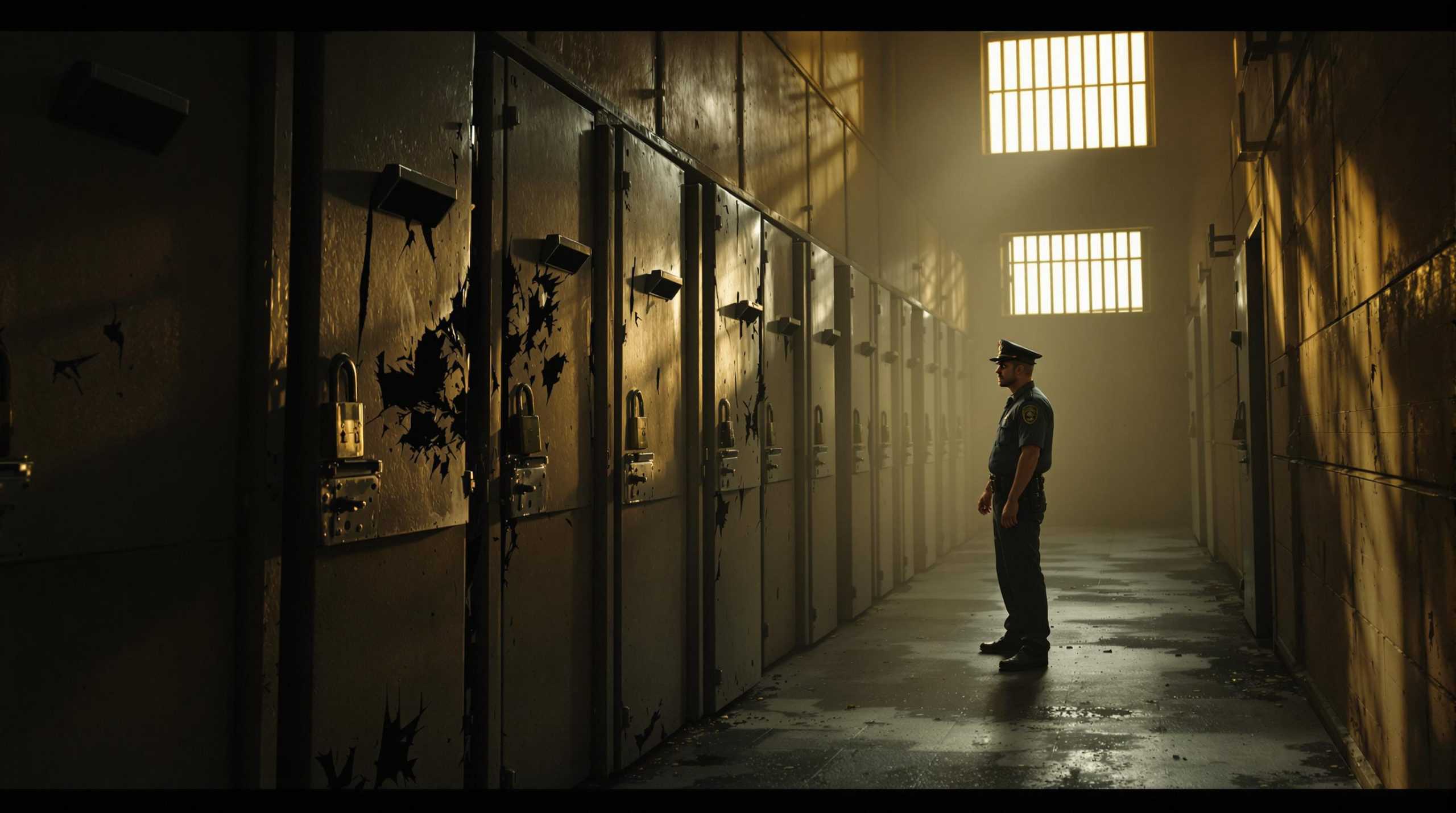Georgia’s prisons are in a state of crisis. Severe understaffing, with a 52.5% vacancy rate for correctional officers, has led to skyrocketing violence, deteriorating living conditions, and threats to public safety. In 2024, 207 deaths were reported in state facilities, including 36 homicides, highlighting the urgent need for reform.
Key Issues:
- Violence and Deaths: Homicides in Georgia prisons have surged by 95.8% over the last three years.
- Overcrowding: Long sentences and nearly 10,000 life-sentenced inmates strain resources.
- Recruitment Challenges: Low pay and dangerous conditions discourage applicants, with 80% failing to complete the hiring process.
- Public Safety Risks: Lack of rehabilitation programs increases recidivism, with rates dropping from 26% to 13.64% for inmates who complete vocational training.
Solutions:
- Increase Pay: Match salaries with neighboring states to attract and retain staff.
- Policy Reforms: Reduce overcrowding by reviewing sentencing practices and expanding rehabilitation programs.
- Leverage Technology: Automate tasks and enhance security systems to ease staffing demands.
The current system endangers everyone – guards, inmates, and the public. Immediate action is needed to address these systemic failures and rebuild Georgia’s prison system into one that prioritizes safety, dignity, and rehabilitation.
How Understaffing Puts Everyone at Risk
Rising Violence and Safety Issues
Georgia’s prison system is grappling with a severe understaffing crisis, leading to alarming levels of violence. In 2024 alone, 981 people have died in Georgia prisons, with 36 deaths classified as homicides [1]. The lack of adequate staffing creates blind spots, making it easier for violence and contraband trafficking to go unchecked.
However, the issue extends beyond violence. Staffing shortages are also taking a toll on the health and dignity of those incarcerated.
Worsening Health and Living Standards
Healthcare and basic living conditions in Georgia’s prisons have deteriorated due to insufficient staffing. Medical emergencies often go unattended because there aren’t enough staff to escort inmates to medical facilities or monitor those in need of care. Mental health services are stretched to the breaking point, leaving many inmates without essential support.
These shortages also delay medical attention, restrict access to mental health care, and disrupt rehabilitation programs. Even basic necessities like meals, hygiene, and exercise are often neglected. The collapse of these essential services doesn’t just harm inmates – it has broader implications for society.
Threats to Public Safety
The effects of understaffing don’t stop at the prison gates. When violence goes unchecked and rehabilitation efforts are abandoned, public safety is at risk. Georgia’s recidivism rate is 26%, but for inmates who complete vocational programs, it drops significantly to 13.64% [4]. Unfortunately, staff shortages make it nearly impossible to run these programs effectively, leaving inmates unprepared for life after release and more likely to reoffend.
"Individuals incarcerated by the Georgia Department of Corrections should not be subjected to life-threatening violence and other forms of severe deprivation while serving their prison terms." – U.S. Attorney Ryan K. Buchanan for the Northern District of Georgia [3]
These conditions not only violate constitutional rights but also put communities at risk. Releasing individuals without proper rehabilitation or supervision perpetuates a cycle of crime and overcrowding, further straining the system.
What’s Causing the Staffing Shortage?
Decades of Neglect and Overcrowding
Since the 1990s, Georgia’s prison system has been heading down a troubling path, with a growing gap between the number of inmates and available staff. Despite operating on a $1.2 billion budget, the Georgia Department of Corrections (GDC) is grappling with a 52.5% correctional officer vacancy rate in 2023 [2]. The situation is dire: 18 prisons report vacancy rates over 60%, and 10 exceed 70%. With average sentences lasting 26 years and nearly 10,000 inmates serving life sentences, the strain on resources has become overwhelming [2].
Challenges in Hiring and Retaining Staff
The GDC struggles to both recruit and keep qualified staff. A major hurdle lies in the hiring process itself, with 80% of applicants failing to complete it [4]. On top of that, correctional officers in Georgia are paid less than their counterparts in nearby states like Alabama, Florida, Tennessee, and South Carolina [4]. This pay gap, combined with the dangers of the job, creates a vicious cycle: fewer staff lead to riskier conditions, which in turn discourage potential recruits.
Policy Missteps and Systemic Issues
The Department of Justice has determined that conditions in Georgia prisons violate the Eighth Amendment of the U.S. Constitution [3]. The system has put too little emphasis on rehabilitation programs that could reduce repeat offenses and alleviate overcrowding. Instead, it has relied heavily on segregation and failed to address gang violence [2]. Between 2018 and 2023, homicides in GDC facilities jumped by 95.8%, with 94 deaths recorded in just three years [2].
Without changes to both policies and practices, the staffing crisis will only deepen, jeopardizing the safety of inmates and staff alike. Addressing these systemic problems is crucial to stabilizing Georgia’s prison system and preventing further decline.
sbb-itb-25113a2
Steps to Fix the Staffing Crisis
Pay Increases and Better Support for Staff
To address staffing challenges, Georgia needs to match correctional officer salaries with those in neighboring states like Alabama, Florida, Tennessee, and South Carolina [4]. Offering better pay is just the start – officers also need access to advanced training and mental health programs. These measures can help build a stable workforce and improve prison conditions.
Addressing Overcrowding Through Policy Reforms
Georgia’s prisons face severe overcrowding, with an average sentence length of 26 years and nearly 10,000 inmates serving life sentences [2]. Tackling this issue requires immediate policy changes. Expanding single-cell facilities can enhance safety, while reviewing sentencing practices, increasing mental health services, and offering more vocational training can reduce inmate numbers and improve rehabilitation efforts.
Leveraging Technology for Greater Efficiency
Technology can play a key role in easing the staffing crisis. Automating tasks like headcounts and enhancing security systems can help prisons operate more smoothly with fewer staff. Tools such as data analytics can also identify violence patterns and predict potential risks, allowing for smarter resource use and better safety measures.
Inmates, guards at risk in Georgia’s understaffed prisons
Conclusion: Time to Act on Prison Staffing
Georgia’s prisons are in crisis. Severe understaffing has led to unchecked violence, constitutional violations, and a staggering loss of life. In 2024 alone, 207 deaths were reported in state facilities [1], underscoring the urgent need for change.
This issue goes far beyond numbers. Federal investigations have revealed deep-rooted failures that jeopardize safety, violate the rights of inmates, and pose risks to staff and nearby communities. While the Georgia Department of Corrections has expressed dissatisfaction with federal oversight [3], the evidence makes it clear – action is necessary.
Georgia has options. Other states have shown that real change is possible, particularly through programs aimed at reducing recidivism [4]. To address these challenges, the state must prioritize solutions like raising officer pay, reducing overcrowding, and utilizing technology to improve operations. These steps can help create safer and more effective correctional facilities.
The consequences of doing nothing – rising deaths, increasing violence, and ongoing constitutional violations – are unacceptable. It’s time for Georgia to take meaningful steps to protect lives, uphold justice, and rebuild its prison system. With the right reforms and a commitment to change, the state can transform its correctional facilities into spaces that prioritize safety, dignity, and rehabilitation for everyone involved.
Related posts
- Sanitation Standards vs. Reality in Georgia Prisons
- A Budgetary Black Hole: The True Cost of Neglecting Georgia’s Prisons: Demonstrating how unchecked corruption, violence, and healthcare failures drain state resources.
- The Price of Silence: Why Transparency in Georgia Prisons is Crucial for Accountability: Advocating for policy changes to ensure access to information about prison conditions and incidents.

